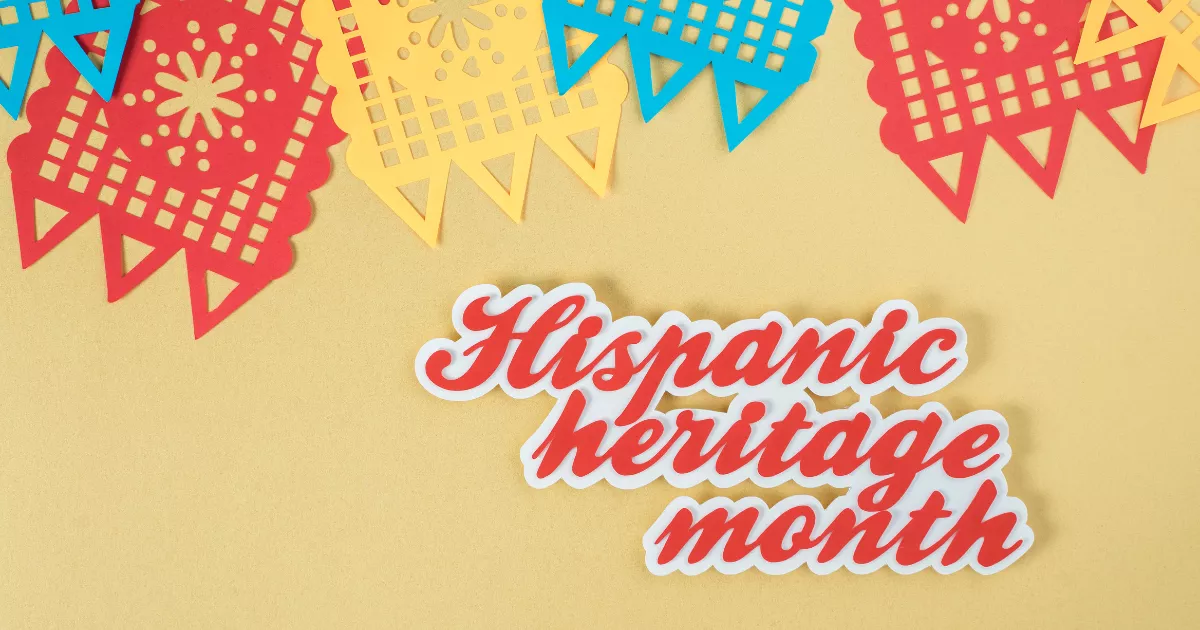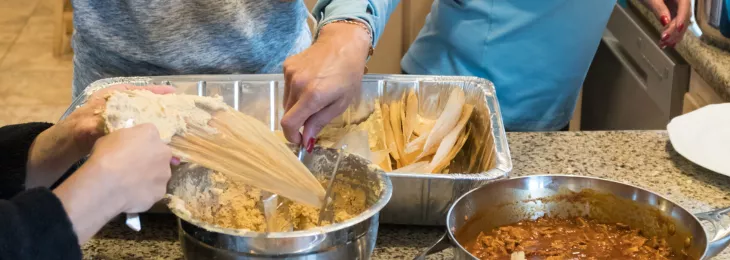
Celebrating Hispanic Heritage Month: Contributions and Challenges of the Hispanic and Latino Communities in the U.S.
Hispanic Heritage Month, observed from September 15 to October 15, is a time to celebrate the vibrant and influential contributions of Hispanic and Latino communities to the cultural, social, and economic fabric of the United States.
From art and literature to food, business, and public service, Hispanic culture has deeply enriched the nation’s diversity. As we celebrate the achievements and contributions of Hispanic Americans, it is also essential to acknowledge the challenges that persist within this community, particularly in health, human rights, and economic equality.
The Cultural and Social Impact of Hispanic Heritage
The influence of Hispanic culture on American society is profound and far-reaching. With over 60 million Hispanics living in the U.S., their contributions span centuries, touching every facet of life. Hispanic and Latino communities have not only preserved their rich traditions but have also fused them with the American experience to create a unique cultural footprint.
The Arts and Entertainment
Hispanic artists, musicians, and entertainers have played a crucial role in shaping American culture. Iconic figures such as Frida Kahlo, Diego Rivera, and more recently, Lin-Manuel Miranda, have made lasting contributions to visual arts, music, and theater.
Hispanic writers, including Isabel Allende, Gabriel García Márquez, Sandra Cisneros, and Pablo Neruda, have captivated readers with novels, poetry, and essays that explore the human condition through magical realism and other literary movements.
In film, directors like Alfonso Cuarón, Guillermo del Toro, and Aurora Guerrero have gained international recognition for their contributions to cinema.
In music, Hispanic influence is undeniably widespread. From salsa, bachata, and reggaeton to Latin pop, artists like Celia Cruz, Marc Anthony, and Bad Bunny have gained global recognition, with their music crossing language and cultural barriers.
The Latin Grammys and the increasing popularity of Latin music genres highlight the growing appreciation for Hispanic culture within the mainstream.
Hispanic Cuisine
One of the most visible and beloved contributions of Hispanic culture is food. Hispanic and Latino cuisines have become staples in American households and restaurants alike. Dishes like tacos, tamales, ceviche, and paella have gained widespread popularity, blending traditional ingredients with modern interpretations.
Mexican food, in particular, has had an enormous impact on American cuisine, influencing everything from fast food to fine dining. The celebration of food, family, and community through shared meals is a hallmark of Hispanic culture that resonates deeply with American values. Hispanic culinary traditions are often tied to deep cultural roots and family heritage.
The preparation of foods such as empanadas, arepas, and pozole often involves time-honored techniques passed down through generations. The emphasis on fresh ingredients, bold flavors, and communal dining creates a food culture that is not only delicious but also rich with meaning and connection.
Business and Entrepreneurship
The entrepreneurial spirit is strong within the Hispanic community, with Hispanic-owned businesses being one of the fastest-growing segments of the U.S. economy. In industries ranging from technology and finance to retail and hospitality, Hispanic entrepreneurs are making their mark.
According to a study by the Stanford Latino Entrepreneurship Initiative, the number of Hispanic-owned businesses in the U.S. has grown significantly, generating billions in revenue and creating millions of jobs.
Hispanic small business owners are not only contributing to the economy but are also playing a vital role in their communities. Many are dedicated to providing opportunities and mentorship to the next generation of Hispanic entrepreneurs, fostering a sense of community and shared success.
Despite facing challenges like limited access to capital and business resources, Hispanic business owners continue to thrive and enrich the U.S. economy with their innovation and resilience.
Public Service and Political Leadership
Hispanic Americans have long been active in public service, contributing to social progress and political change. Figures like Supreme Court Justice Sonia Sotomayor and former U.S. Secretary of Housing and Urban Development Julián Castro have broken barriers and provided inspiration to the Hispanic community. Politicians such as Alexandria Ocasio-Cortez and Marco Rubio represent diverse political perspectives while advocating for issues important to their communities.
Hispanic political activism has been a driving force in the fight for civil rights, education reform, and labor rights. The United Farm Workers (UFW) movement, led by Cesar Chavez and Dolores Huerta, remains a powerful example of the community’s commitment to achieving social justice and improving the lives of Hispanic workers and their families.
Preserving Language and Traditions
The Spanish language plays a central role in preserving Hispanic heritage and fostering a sense of identity. Spanish is the second most spoken language in the U.S., with over 40 million people using it at home. Bilingualism in Hispanic households not only helps preserve cultural ties but also enriches American society by promoting diversity and cross-cultural understanding.
Celebrations such as Día de los Muertos (Day of the Dead), Las Posadas, and Hispanic cultural festivals across the country help maintain the customs and traditions passed down from previous generations. These celebrations offer both Hispanics and non-Hispanics alike opportunities to learn about and appreciate the rich history, art, and folklore that define Hispanic cultures.
Health, Human Rights, and Economic Inequality
While there is much to celebrate during Hispanic Heritage Month, it is also crucial to address the challenges faced by the Hispanic community in the U.S. Despite their numerous contributions to society, many Hispanics continue to grapple with disparities in health care, human rights, and economic opportunities.
Health Disparities
Hispanic Americans face significant health challenges, including limited access to healthcare, higher rates of chronic diseases, and mental health stigmas. One of the key issues is that a substantial portion of the Hispanic population remains uninsured. According to the U.S. Census Bureau, Hispanic people are disproportionately represented among the uninsured, which leads to disparities in access to preventive care and treatment for chronic conditions such as diabetes and heart disease.
Hispanic people are also more likely to suffer from conditions like obesity and diabetes, partly due to socioeconomic factors that limit access to healthy food options and healthcare services. Additionally, mental health remains a stigmatized topic in many Hispanic communities, resulting in fewer individuals seeking treatment for mental health issues such as depression and anxiety.
Human Rights and Immigration
Immigration policy continues to be a significant human rights issue affecting the Hispanic community. Millions of Hispanic people live in the U.S. as undocumented immigrants, facing the constant threat of deportation, family separation, and discrimination. Programs like the Deferred Action for Childhood Arrivals (DACA) have provided temporary relief for some, but uncertainty looms as legal challenges threaten the future of these protections.
The controversial practice of family separation at the U.S.-Mexico border has left lasting scars on many Hispanic families. Although efforts have been made to reunite separated families, the trauma endured by children and parents continues to affect the community. Additionally, racial profiling and discrimination persist, particularly in immigration enforcement and border control practices.
Economic Inequality
Economic inequality remains a significant issue for the Hispanic community. While Hispanic Americans contribute enormously to the economy, they continue to face wage disparities, job insecurity, and barriers to wealth accumulation. Hispanic workers earn less than their white counterparts, with Hispanic women experiencing the most significant wage gap. Many Hispanics are employed in low-wage industries where job security and benefits are limited.
The COVID-19 pandemic exacerbated these economic disparities, disproportionately impacting Hispanic workers, many of whom were employed in sectors hit hardest by the pandemic. Hispanic-owned businesses also struggled, as access to federal relief was often limited.
Moving Forward
Addressing these challenges requires concerted efforts from policymakers, community leaders, and advocates. Expanding access to affordable healthcare, reforming immigration policies, and creating pathways for economic mobility are critical steps toward achieving equity. Advocacy groups such as UnidosUS and the Hispanic Federation continue to push for progress on these issues, working to build a brighter and more equitable future for the Hispanic community in the U.S.
It’s important to celebrate the contributions and triumphs, and resolve the challenges and inequities of the Hispanic and Latino communities who have so generously woven their rich cultures into the larger U.S. tapestry, and not just during Hispanic Heritage Month.



